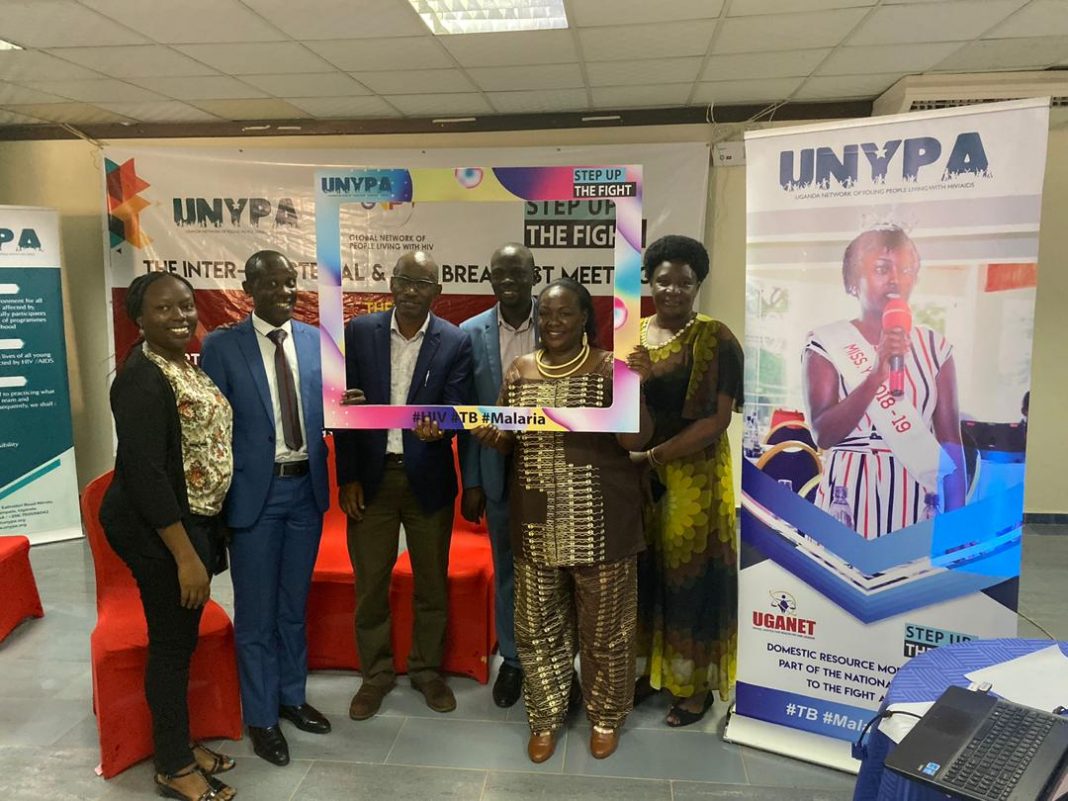By Benon Herbert Oluka
On the morning of Tuesday, October 22, 2019, I attended a meeting of civil society organisations that made me appreciate some of the challenges that stand in the way of NGO efforts to try and improve the lives of ordinary citizens where they operate.
No, I am not talking about the third annual national sex workers’ dialogue, although I saw my fair share of odds in that one too.
There was another before that, a breakfast meeting. It was called to discuss the mechanisms for domestic resource mobilization to combat Tuberculosis, HIV and malaria.
The organizers and funders of the meeting were all Non-Government Organizations (NGOs). The organizing team was led by the Uganda Network of Young People Living with HIV and UGANET (hitherto the Uganda Network on Law, Ethics and HIV/AIDS), while the co-funders were the Global Network of People Living with HIV (GNP+) and the East African Network of AIDS Service Organizations (EANASO).
The government wasn’t expected to inject even a penny into the meeting. All its officials had to do was honour the invitation.
Now, for a long time now, about 70 per cent of the funds that the Uganda government uses to respond to those three diseases have come from donors, channeled especially through the Global Fund and PEPFAR (United States).
That arrangement means that Uganda is standing on shaky ground. The day the providers of that money decide to close the taps, then Uganda would almost instantaneously fall into a health-sector funding crisis.
In fact, according to the Vice Chairperson of the Uganda Country Coordinating Mechanism (UCCM) Board, Titus James Twesige, some donors have implied that they may not be around for a long time.
“The development partners are encouraging us to put in place more sustainable domestic funds. At the moment, they are supporting us, they have not clearly indicated that they are not going to continue funding us but there are signs that they will not continue funding us for a long time,” he said.
Uganda CCM is responsible for mobilizing resources and overseeing/monitoring the implementation of the Global Fund supported programmes in Uganda to ensure that the approved funds are used for the intended purpose. Therefore, faced with fears of possible foreign budget cuts, Twesige says the importance of an AIDS Trust Fund that is bankrolled by citizens through government revenue collection mechanisms cannot be understated.
“The earlier we put the AIDS Trust Fund on the ground and it starts working, the better. But is it enough on its own? It’s not enough. We will need to look for other innovative resource mobilization strategies to ensure that we have enough resources to sustain the response,” he said.
Indeed, it was in a bid to start mobilizing resources locally that the Uganda Parliament passed the provisions in the HIV/AIDS Prevention and Control Act of 2014 that would pave the way for the government to establish the AIDS Trust Fund.
“This [money] was to be collected through tax by Uganda Revenue Authority. There are taxes like on beverages like water, a component of which would be going to the AIDS Trust Fund directly. It’s not that the government is putting in money,” explained Twesige.
However, that is as far as the government has gone in its commitment to the AIDS Trust Fund. Since the legal framework was put in place five years ago, the government has not injected any money from the taxes its collects daily to where its mouth once was.
Some NGO sector officials intimated that every time they have gone to meet Finance Ministry officials to lobby for some money to be set aside for the AIDS Trust Fund, they are intimidated into silence.
From the evidence at yesterday’s meeting, it is likely that no money will be set aside for the AIDS Trust Fund in the next financial year as well (2020/2021), if the indifference of government officials is anything to go by.
The meeting was touted as an “inter-ministerial & CSO breakfast meeting,” and the theme was “domestic resource mobilization as part of the national response to the fight against TB, malaria and HIV.”
However, for the entire meeting, the chairs that were reserved for officials from the ministries of finance and health, the two government institutions that hold the key to the funds that could end up in the AIDS Trust Fund kitty, were empty. Not even a junior government official turned up.
“I note with serious concern that there is no government [official] here to listen to all [the discussions] but also to account as this is their responsibility,” said Twesige.
Incidentally, when the government was “benchmarking” for the establishment of that fund, government officials formed the bulk of the delegations that made a number of foreign trips for that exercise.
The head of HIV prevention at the Uganda AIDS Commission (UAC), Dr Daniel Byamukama, said the government ministries need to increase their support in the fight against HIV/AIDS, especially as Uganda seems to ceding some of the ground it had gained over the disease in the past.
“AIDS is a disease unlike any other. If we don’t put in place measures to ensure for sustaining the response, [we will be doomed] because people who have HIV, unlike malaria, live long and they need constant care and we need to plan for this. It shouldn’t take us by surprise,” he said.
Dr Byamukama said one of the challenges with establishing the AIDS Trust Fund is that there is no precedent to learn from “so it becomes a difficult negotiation. At every level, there is a roadblock but we are sure that along the way to put this Trust Fund in place.”
The civil society is encouraged by the return of President Museveni to lead the latest fight against HIV/AIDS. In the past few weeks, Museveni has recorded messages that are broadcast to the public. Civil society organizations hope that the president will hear their cry and send a message to the top honchos at the finance ministry who have decided to sit on their hands over the AIDS Trust Fund.








